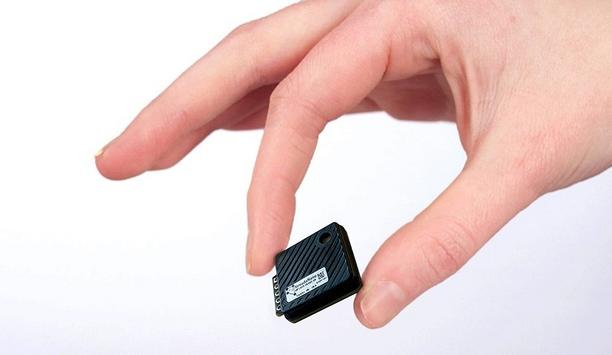Editor's Note
Rooftop units (RTUs) withstand a lion’s share of the burden, when it comes to heating and cooling commercial buildings, and they also represent a big portion of a building’s impact on global warming. Traditional low-tech approaches to controlling RTUs have failed to address global warming concerns, and these units, operating independently, may not even deliver sufficiently on the climate demands of a building. Intelligent approach to managing energy demand Providing an intelligent...
AHR Expo was back in a big way for 2022, reflecting a dynamic industry that not only survived the pandemic but has found new ways to thrive. Technical developments on display in Las Vegas spanned traditional product categories, which continued to display new levels of innovation in a mature market. Also reflecting progress were new digital offerings that increase control and efficiency of HVAC products and link them to the expanding world of data. Omar Tabba, the Chief Product Officer at...
It’s great time to be in the HVAC industry. That was the optimistic vibe as the AHR Expo opened in Las Vegas, the first such in-person gathering of the industry since the beginning of the global pandemic. Attendance was moderate and steady throughout the first day of the show as HVAC professionals took stock of technology developments that have emerged over the last two years. COVID changed the HVAC market, probably forever, and the changes extend beyond the masks that were dutifully wor...
A new installation is using natural heat from groundwater to regulate the indoor climate of The Glen Mhor Hotel in Scotland. The groundwater is further heated by two electric heat pumps and distributed to guest rooms and apartments through a small heating district network. From the system, which is slated for completion this spring, the water will return to the sand and gravel layers in shallow ground around Inverness, and eventually back to the River Ness. The design, which replaces 20 gas-fir...
The HVAC market is moving fast. Supply shortages, technology trends and regulatory issues all converged and had a profound impact on the industry in 2021, even as the lingering impact of the COVID-19 pandemic also made a mark. Looking back at the top articles of the year at HVACInformed.com, as measured by those that received the most ‘clicks’ on the website, provides a decent summary of how the industry evolved in 2021. Top 10 articles posted at HVACInformed.com in 2021 Timely and...
Veterans make good job candidates. Military experience comes with a heightened work ethic and sense of responsibility. Many veterans have experience working outdoors and with their hands. They are used to being team members. Coming out of the military, however, veterans may find themselves at a loss for a career path. HVAC may be the answer. “Veterans are used to getting up early, being on time, wearing a uniform, and they are dedicated and committed,” says Marvin Key, CEO and Co-F...
HVAC systems typically operate on a schedule. Heating, cooling and ventilation systems start and stop at fixed times of the day, scheduled around when and how a building is used. But, shouldn’t the number of occupants in a building or a room have an impact on how the HVAC system operates? Considering occupancy, when addressing HVAC needs, is an especially timely approach, given that building schedules are less predictable now, since the COVID-19 pandemic changed work patterns, possibly fo...
Society is prioritizing the mitigation of climate change, and new, potentially flammable, low-Global Warming Potential (GWP) refrigerants are a key tool in broadly lowering the rate of global warming. The detection of fugitive (leaking) refrigerant is a new regulation emerging as HVAC equipment manufacturers convert to low-GWP refrigerants. Both A2L and A3 low-GWP refrigerants, while climate-friendly, are flammable. As such, OEMs will have to integrate refrigerant sensors that detect leaked ref...
Natural gas heating and cooking are coming under more scrutiny, especially their negative impact on indoor air quality. In particular, nitrogen dioxide (NO2) emitted from gas stoves and furnaces aggravate childhood asthma. The issue has been obvious for years but is now getting renewed attention of regulators. Gas heating and cooking are popular throughout the United States and Europe. One estimate is that a third of U.S. homes use natural gas for cooking, which has been promoted for decades as...
The concept of district heating refers to a group of customers, or even a whole city, which shares a system providing ambient heat, often using steam or water heated by sources that emit less carbon dioxide. A network of insulated pipes, constructed underground in a community, transports the heat among customers, and various meters and billing systems keep up with how much heat is provided. District heating District heating is seen as an increasingly important option, as municipalities seek to...
A focus of research and development in the HVAC arena has been to develop alternative materials and technologies that requires less energy to function while still providing a benefit to regulate temperature. More passive approaches to regulating temperature offer green benefits and yield new components in systems to regulate temperatures in the future. Here are some examples and a glimpse of what’s to come. Phase-change materials have drawn interest because of their ability to change the...
‘Net zero’ is an unavoidable reality in the continuing fight against climate change. For example, both the United Kingdom and the European Union have set targets of having net-zero greenhouse gas emissions by 2050. These objectives are in line with a commitment to global climate action under the Paris Agreement. Net zero - carbon neutral Net zero refers to the balance between the amount of greenhouse gas produced and the amount removed from the atmosphere. It’s another term f...
High school seniors and their parents weigh multiple factors, when choosing a college or university. In the aftermath of the COVID-19 pandemic, the importance of one factor has shown a marked increase. Indoor air quality (IAQ) is now among the top-three aspects that an applicant and their parents would consider, when choosing a college, according to one survey. Growing awareness of IAQ Growing awareness of IAQ presents an opportunity, as the HVAC industry seeks to serve the higher education ma...
Many new buildings are constructed to maximize the efficiency of HVAC systems and to minimize their environmental impact. But what about older buildings? How can they work to achieve efficiency and environmental goals? One answer involves the use of artificial intelligence (AI). “There are a lot of older buildings, and existing buildings are rarely demolished,” says Jean-Simon Venne, Co-Founder and Chief Technology Officer of Brainbox AI. “There are so many of them and t...
When COVID-19 hit, North Arkansas College had to close its school, and students had to transition from in-person to online learning, which is especially difficult when teaching a trade that is heavily dependent on hands-on training. The HVAC/R program at North Arkansas College, which has existed for over 50 years, typically has an average of 14 to 16 students enrolled each year. HVAC/R program “With the quick transition we had to think outside the box, and so we found a company that had...
The current Biden Administration’s renewed focus on climate change has expedited the phasedown of high-GWP refrigerants, kicked off by the passage of the American Innovation and Manufacturing (AIM) Act, part of the December 2020 COVID stimulus bill. As the AIM Act phase-down schedule progresses, higher-GWP HFC refrigerants, while viable, have the potential to have a limited useful life and ultimately be eliminated. In response to pending changes, Johnson Controls has announced it will use...
Interfacing with HVAC products is increasingly complex. The tiny 1-inch LCD display included on systems does not lend itself to complicated functions. Keeping the HVAC user interface simple limits control options to on/off, mode change or choosing a temperature. Thermostat controls company COTHERM has developed a smartphone app that can be used to control complex functions such as product settings during installation, programming or providing technical information about an HVAC product. Near f...
The COVID-19 pandemic has changed the way the world lives, escalating the need to prioritize health and safety where we live, work, learn and play. As organizations around the world respond to the pandemic, the International WELL Building Institute (IWBI) has leveraged its expertise to help. Impact of building surroundings IWBI is a public benefit corporation focused on deploying “people-first places” to advance a global culture of health. The community has adopted the WELL Buildin...
It’s shaping up to be a long, hot summer for HVAC contractors and their customers. Disruptions in the nationwide supply chain that began during the COVID-19 pandemic still have not been resolved. Shutdowns last summer played havoc with the supply of parts, and suppliers are still playing catch up, as raw materials remain scarce. Furthermore, prices are going up among some components and key raw materials. Waiting times for parts can run into weeks or even months. Supply shortages of HVAC...
Artificial Intelligence (AI) is an emerging tool for a long list of applications, including the ability to analyze and ensure optimum performance of an HVAC system. Emerson’s Sensi Predict smart HVAC solution is an example of how AI can boost the capabilities of HVAC. It has been recognized with a Silver Edison Award in the Innovative Services – AI category. Sensi Predict smart HVAC solution Sensi Predict combines inputs from 10 sensors in an HVAC system and analyzes the performanc...
The term ‘robotics’ refers to technology or machines that substitute or replicate human actions. ‘Human augmentation’ is another term, referring to the use of technology to reduce strain and fatigue as workers perform strenuous tasks over long periods of time. Hilti Group has introduced robots and semi-automated technologies to the construction trades, including HVAC. The role of these technologies in the HVAC market is to increase efficiency and accuracy, reduce costs,...
What do customers want from their HVAC company? It’s a challenging question, and the answers reveal a path to a more successful and customer-centric company. There are numerous articles written that offer consumers advice on choosing an HVAC company. In the simplest terms, wouldn’t it be possible to ‘reverse engineer’ that advice to provide a roadmap to guide HVAC companies in how to succeed? Addressing consumer concerns Often, consumers’ concerns surround whether...
Duct tape is both the most familiar product associated with the HVAC industry and, in many cases, not fit for purpose. Duct tape is also misunderstood. In fact, the product began as waterproof cloth tape that was called “duct tape,” emphasizing its ability to withstand moisture. Misinterpretation of duct tape Many tape products now identified as “duct tape” are not suitable for use with HVAC systems, which require permanence and the ability to withstand prolonged heat...
There are way too many stories of contractors falsely telling homeowners they have mold or other toxic substances in their HVAC systems, often using scare tactics to persuade homeowners to pay for costly, unneeded services. Unfortunately, these dishonest companies can make the whole industry look bad. Working to end such abuses, and to promote the value of professional inspection, cleaning and restoration of HVAC systems, is the National Air Duct Cleaners Association (NADCA), which was formed i...
Excessive heat is a byproduct of data center servers and one that presents both economic and environmental challenges. Data centers are one of the world's fastest-growing contributors of CO2 emissions, for example, currently generating well over 100 million tonnes of CO2 globally per annum. This roughly equates to half of the global aviation emissions, 30 million cars or 36 coal-fired power plants. Currently, data centers waste over 200TWhrs of energy annually, on a global scale. Sustaina...
Incorporating cool and dry outdoor air into commercial HVAC systems can save money and energy, while causing less wear-and-tear on cooling systems. An economizer is a device that works alongside rooftop HVAC systems to augment the system with outdoor air, in order to provide what has become known as ‘free cooling’. Economizers Economizers introduce low-temperature or low-enthalpy outdoor air into a building to reduce or eliminate mechanical cooling, depending on outdoor air conditi...
This year’s Texas deep freeze struck the region hard, causing an estimated $10 billion in damage. It was one of the costliest winter weather events in the state’s history. The extreme weather conditions severely impacted HVAC systems, too, overtaxing equipment and challenging contractors to keep up with the pace of repairs. What did not happen, despite some homeowner insurance claims filed in the aftermath of the extreme cold snap, was ‘frozen refrigerant.’ Although the...
Membranes made of an organic material called polyimides, which are then treated to become hydrophilic, provide a promising approach to developing dehumidifiers that could eventually bring down the price of HVAC systems and make them more environmentally friendly. Research at Texas A&M University’s College of Engineering describes how the polyimide material could be used to dry environmental air using less energy. Triggering Hydrolysis Polyimides are made of chains of repeating, ring...
The most likely scenario for the next 12 months in the United Kingdom is far lower risk of serious COVID-19 illness due to the vaccine. However, there will be big swings in R rates, and there is uncertainty about how effective vaccines will be against COVID variants. The ‘R’ rate is the number of people one infected person will pass a virus on to, on average. As the scenario plays out, and more companies open for business, issues of indoor air quality will continue to be top of mind...
Innovation is a driving force behind most industries, including HVAC. Keeping up with industry research, and looking toward the future, helps HVAC professionals to anticipate upcoming changes to the industry, and to be prepared when they happen. There is no shortage of innovation in the sphere of HVAC. I recently came across some interesting designs (and one product already on the market!) that provide a useful glimpse into the types of projects that may shape the HVAC industry of tomorrow. La...
Related videos
Introduction | Decarbonization Explained | Danfoss
Quilt Partner Spotlight: Albert Nahman Plumbing, Heating, And Cooling
Munters LCX Liquid-To-Liquid Coolant Distribution Units
Expert Commentary
From A To L: Your A2L Transition Guide
DownloadLeveraging Radiant And Hydronics To Help Achieve Decarbonization Goals
DownloadSealed Connectors In Harsh Environments
DownloadPowering And Cooling Next Generation Data Centers
DownloadDebunking Myths To Promote A Bright Future For Heat Pumps
Download







































